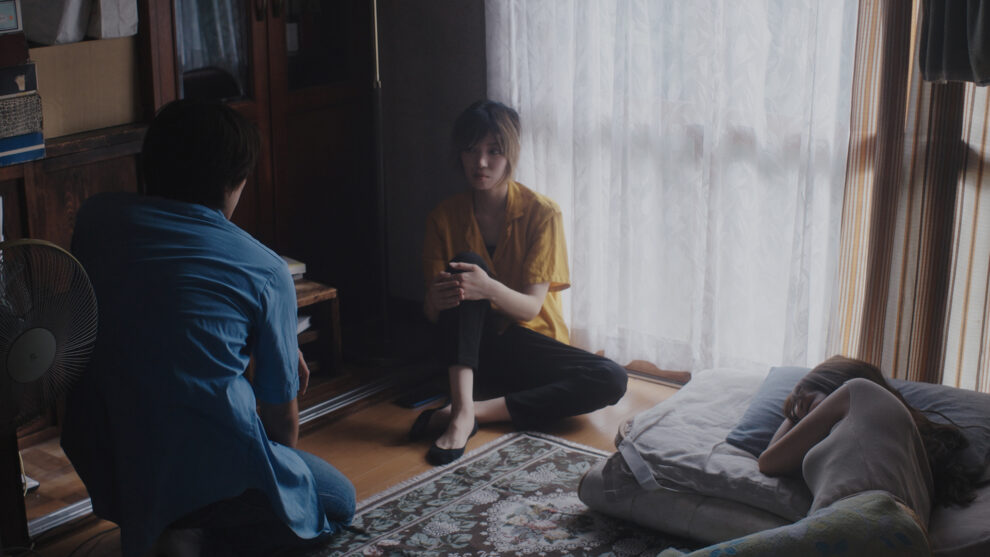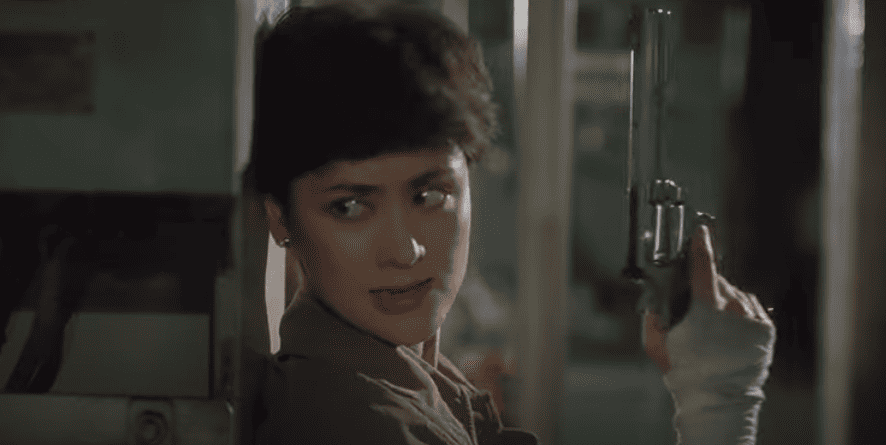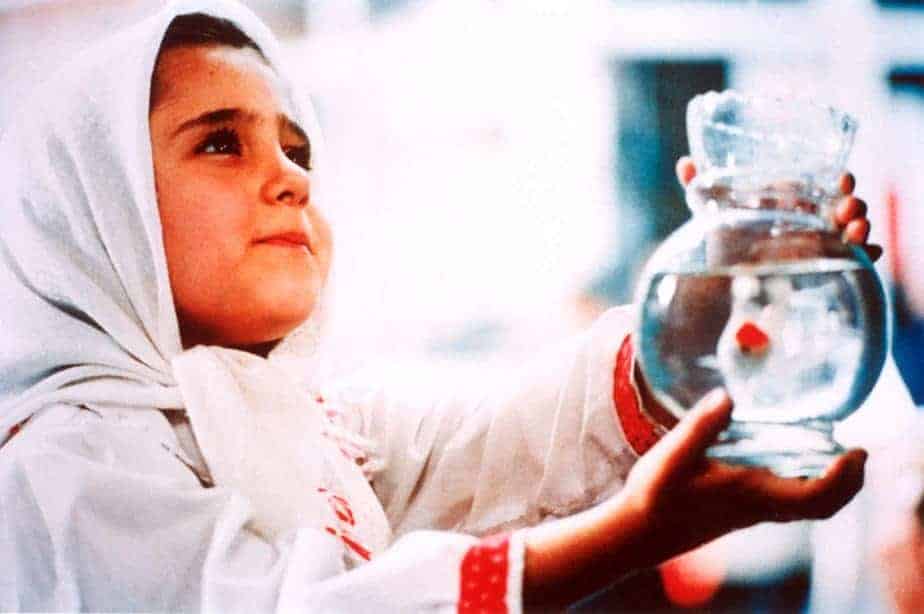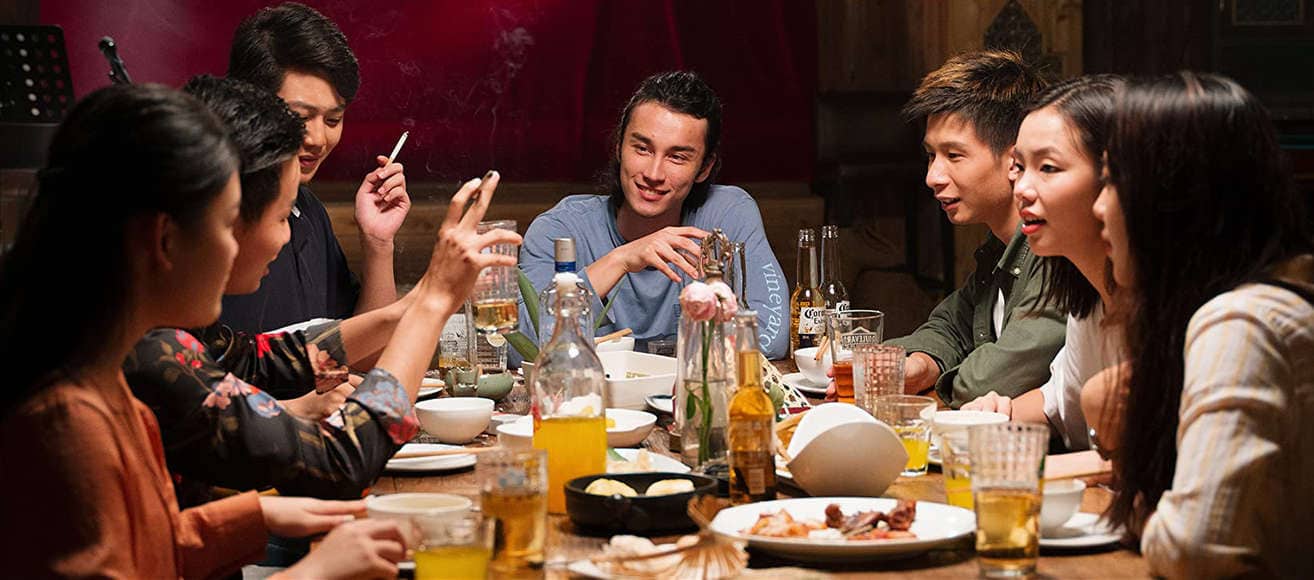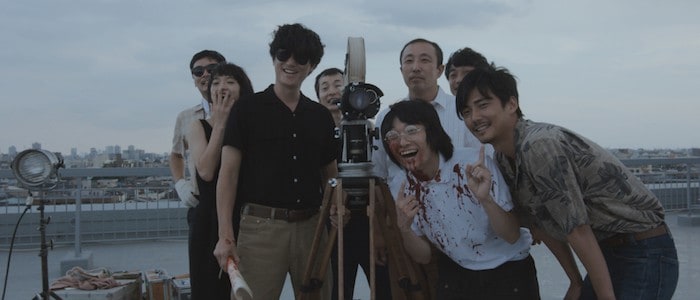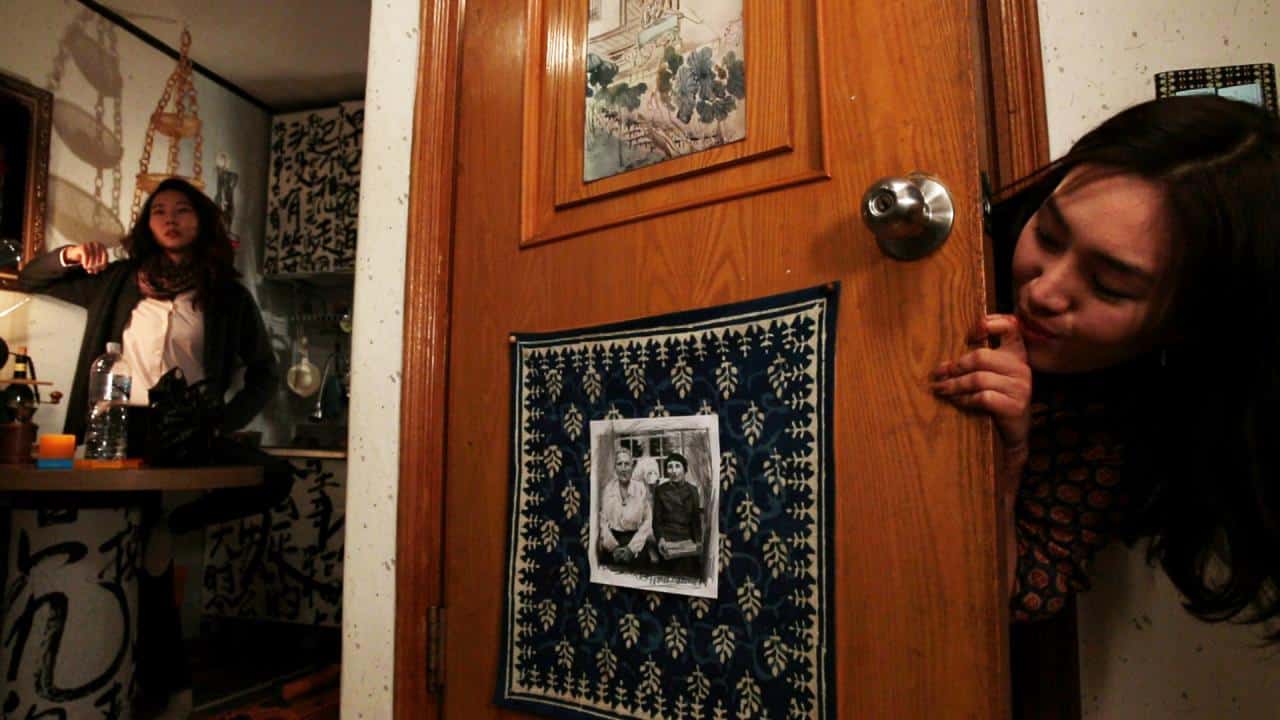Implementing stage play aesthetics, and particularly excessive dialogue, is a practice that occasionally works quite well for cinema, especially when the story and the characters doing the talking are interesting. If not, though, the approach tends to become overly problematic, since the audience definitely expects different things from cinema than they do from theater. Shinya Nakata in his second film, “Ten Years + One Day” implements a similar approach. Let us see how he fares.
Ten Years + One Day is screening at Skip City International D-Cinema Festival

On a rural roadside outside of the urban centers, Harasaki and Morita reunite for the first time in ten years. The latter immediately insists on going to meet Kikushima, another girl from their common past, but the young man is reluctant. Her insistence, however, “convinces” him and the two meet Kikushima, who never actually left the village they find themselves now. There seems to be some tension between her and Harasaki, which Morita tries to tone down, in an effort to reconcile the two. Kikushima is about to get married, and her fiance eventually also becomes part of the equation, particularly through his discussions with Harasaki. The discussions get more and more personal among all the characters, but the past seems to loom over them all.
Regarding her cinematic approach, Shinya Nakata works in two axes for the most part. The first one, as mentioned before, is the intense dialogue that reminds of a stage play, which is essentially how the story and the movie move forward. Reluctantly at first, but as time passes, the protagonists open and more and more about themselves and their past. Kikushima's eventual revelation to her fiance is the most impactful moment in that regard, followed by Morita's self-reflection for her lack of connection with, essentially, everything. The dialogues are both self-reflective and analytical, but also move into more general topics, as in the case of reading Haruki Murakami's books or how the urban web is gradually reaching the rural area of the town the story takes place in, changing it forever. The comment about how people change or not is also interesting, also because it draws a parallel with the way the town changes.
Check also this interview
The second aspect is photography, with Nakata implementing this aspect to the narrative, by having his protagonists in a frame that looks much like a picture every time the scene changes, with the focus on composition and depiction being rather intense, occasionally lingering even after the protagonists are gone. This approach allows him to show both the beauties of the area but also the decrepitness that has creeped in, since the town is getting deserted as more and more people are leaving for the urban centers, in an approach that can also be perceived as a comment about urbanization. As such, the cinematography of the movie emerges as one of its best traits.
As a whole, however, “Ten Years + One Day” does not work that much. It seems that Nakata tried to implement the approach Hirobumi Watanabe has in his movies, but his command of the medium, as much as the writing, is nowhere near the level of the aforementioned. As such, the excessive dialogue, the almost complete lack of tension, the issues with the pacing and the timeline, to the point that it is difficult to realize if what is happening is in the past or the present after a point, result in a movie that becomes quite tiring to follow, and essentially watch after a point. The same applies to the characters, whose mundanity does not allow the viewer to empathize with them, with the exception of Kikushima, whose trauma from the past and overall demeanor provide the only appealing narrative point of focus here.
Expectedly, this aspect also impacts the acting, with the indifferent way the majority of the protagonists deliver their lines becoming annoying after a point, even if what they are saying is interesting on occasion. Again, the exception here is Hatsumi Kaneko who plays Kikushima, who does deliver an impactful performance, although even her, not at all times.
In conclusion, “Ten Years + One Day” does include some interesting aspects individually, but as a whole, does not make much sense, resulting in a movie that is too self indulgent and difficult to follow after a point.


